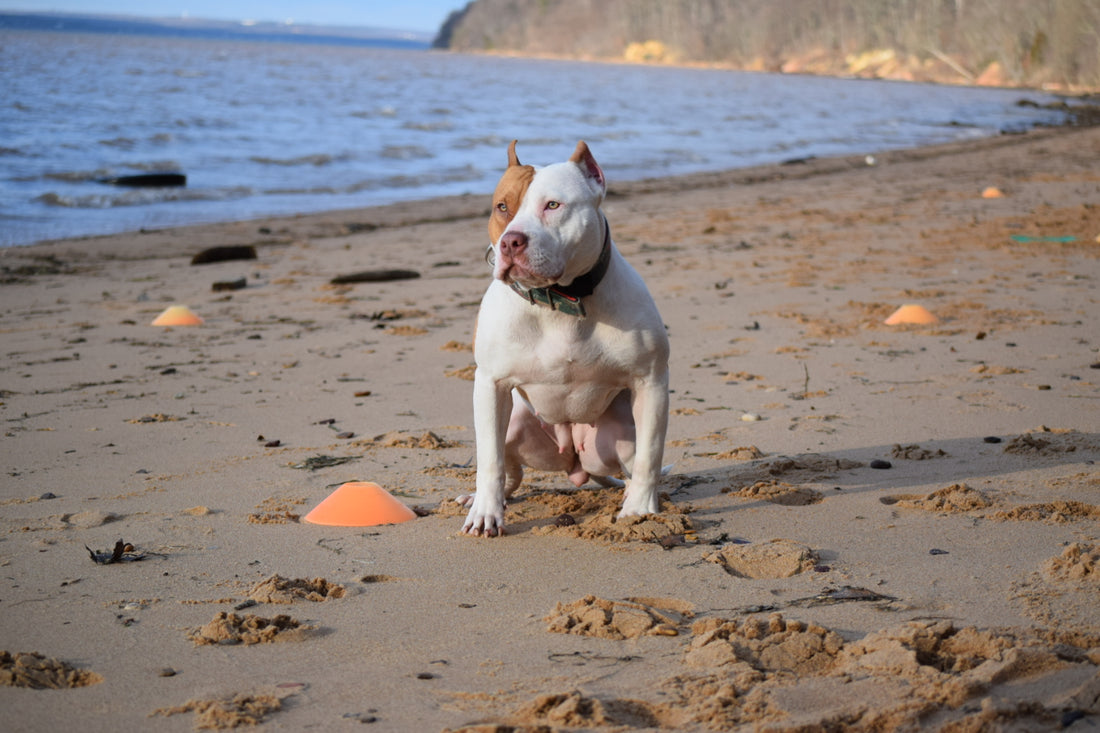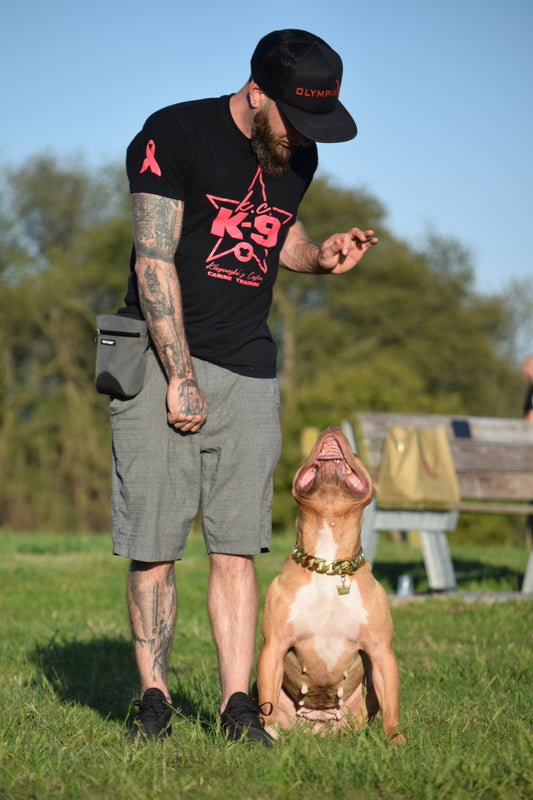Klosowski's Custom Canine Training
Pit Bulls are capable of being trained to be gentle and obedient dogs. Combined with the right owners that will use praise, treats and lots of playtime as effective methods of training will be rewarded with a great companion.
What You Should Know Before Training Your Pitbull Puppy
Let’s start out here by laying a bit of a foundation. Beyond specific techniques and actions, there are a few key factors to understand when learning how to train a pitbull puppy.
One is consistency. If you’re starting a training regimen or setting a rule or boundary, you have to be consistent! Sending mixed messages will confuse your pup, and it will also undermine your own authority. And if you’re not firm when maintaining your rules or boundaries, you will lose dominance in the relationship. It’s important to establish and maintain dominance so that your dog will obey your commands.
Another factor is positive vs negative reinforcement. Never punish your dog. Positive reinforcement is a more effective, compassionate, and enjoyable way to train your dog. Plus, it helps to form a bond between the two of you that should last for years.
Finally, timing is also important. You’ve heard the phrase “can’t teach an old dog new tricks.” Well, although starting later in life isn’t necessarily a lost cause, the younger you start training your pitbull, the better.
Use Positive Reinforcement to Train Your Pit Bull
Pit bulls are usually energetic and fun to train. Many of them do well in advanced obedience and dog sports, such as agility or rally obedience. These activities are a great way to have fun and bond with your pit bull and reinforce good behavior at the same time.
Advanced obedience and dog sports have the added benefit of offering the perfect combination of exercise and mental stimulation that these active and intelligent dogs crave. Because of their muscular build and strength, training that requires leash corrections is not always effective with pit bulls.
You will probably have better results with positive reinforcement techniques, such as clicker training or other reward-based training. Most pit bulls are eager learners and will be happy to work for the rewards.




